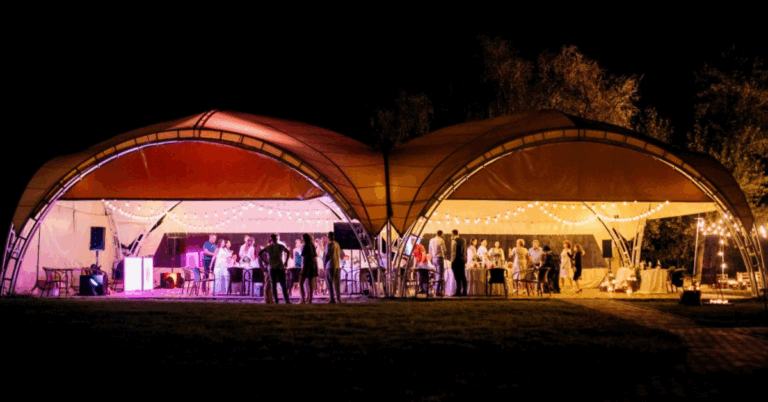Wine Cellar: The Ultimate Guide to Storing and Enjoying Your Wine Collection
A Wine Cellar more than just a storage space—it is a sanctuary for wine enthusiasts to preserve, age, and showcase their prized collections. Whether you’re a casual wine lover or a serious collector, having a well-designed wine cellar can dramatically improve the taste and longevity of your wines.
In this article, we’ll explore everything you need to know about creating and maintaining the perfect wine cellar. From the benefits of having a wine cellar to the essential features it must have, plus expert tips on cellar design and maintenance, this guide will help you create an ideal environment for your wine collection.
What Is a Wine Cellar?
A wine cellar is a specially designed space that maintains optimal conditions for storing wine. Unlike storing wine at room temperature or in random cabinets, a dedicated wine cellar controls temperature, humidity, and light exposure to protect the wine’s quality and flavor over time.
Wine cellars can range from a small under-staircase nook to a large climate-controlled room with custom racks. The main goal of a wine cellar is to slow the aging process of wine, allowing it to mature gracefully and develop complex flavors.
Why You Need a Wine Cellar
Many wine lovers underestimate the importance of a proper wine cellar. Here are key reasons why a wine cellar is essential:
Preserves Wine Quality
Wine is sensitive to heat, humidity, and light. A wine cellar maintains consistent temperature and humidity levels, preventing premature aging and spoilage.
Enhances Wine Aging
Proper aging improves wine complexity. A wine cellar ensures wines develop rich aromas and flavors by aging slowly in ideal conditions.
Protects Your Investment
Fine wines can be expensive. A wine cellar safeguards your investment by providing the best environment to store rare and valuable bottles.
Organizes Your Collection
A well-designed wine cellar allows for easy organization and access to your wines, helping you manage your collection efficiently.
Key Features of an Effective Wine Cellar
Designing a functional wine cellar requires careful consideration of several factors to ensure optimal storage conditions:
Temperature Control
The ideal temperature for wine storage is between 50°F and 59°F (10°C to 15°C). Wine cellars use specialized cooling systems to maintain this consistent temperature, preventing fluctuations that can spoil the wine.
Humidity Regulation
Humidity levels between 60% and 70% prevent corks from drying out and keep labels intact. A wine cellar with proper humidity control protects both the wine and the bottles.
Ventilation and Air Quality
Good airflow prevents mold and mildew. Proper ventilation in a wine cellar helps maintain air quality and keeps odors from affecting the wine.
Lighting
Exposure to UV light can degrade wine. A wine cellar uses low-intensity lighting or UV-filtered bulbs to protect the bottles while allowing visibility.
Storage Racks
Custom racks designed to hold bottles horizontally keep corks moist, which is crucial for aging. Wine cellars feature racks made from wood, metal, or composite materials tailored to your space.
Types of Wine Cellars
Depending on your space, budget, and collection size, you can choose from several types of wine cellars:
Traditional Wine Cellar
A traditional wine cellar is a dedicated room or basement space lined with wood or stone and equipped with cooling units. This is ideal for serious collectors with large collections.
Wine Cabinets and Refrigerators
For smaller collections or limited space, wine cabinets or refrigerators provide a compact, climate-controlled solution. While not as customizable as full cellars, they still protect your wine better than standard storage.
Custom Wine Rooms
Luxury homes often feature custom wine rooms with climate control, elaborate racks, tasting areas, and decorative elements, creating an experience beyond simple storage.
How to Build the Perfect Wine Cellar
Building a wine cellar involves several steps and considerations:
Choose the Location
Basements are popular for wine cellars due to their naturally cooler temperatures. However, any area that can be climate controlled and isolated from direct sunlight can work.
Install Insulation and Vapor Barriers
Proper insulation helps maintain consistent temperature. Vapor barriers prevent moisture from penetrating walls, which is essential for cellar longevity.
Select a Cooling System
Choose a wine cellar cooling unit designed for your space size. Options include ducted, ductless, and through-the-wall systems.
Design Storage Solutions
Custom wine racks, shelving, and display units should maximize space and accommodate your bottle sizes.
Add Lighting and Finishing Touches
Install soft, UV-protected lighting and finish the cellar with materials like wood, stone, or tile to enhance aesthetics and functionality.
Maintaining Your Wine Cellar
Keeping your wine cellar in peak condition requires regular attention:
-
Monitor temperature and humidity daily using a reliable gauge.
-
Clean the cellar and racks periodically to prevent dust and mold.
-
Check for leaks or drafts and address any insulation issues.
-
Inspect bottles for damage or leakage and rotate older bottles forward.
-
Maintain your cooling system with regular servicing.
Frequently Asked Questions (FAQ)
What temperature should a wine cellar be kept at?
The ideal temperature for a wine cellar is between 50°F and 59°F (10°C to 15°C). Maintaining this range preserves wine quality and allows proper aging.
How humid should a wine cellar be?
Humidity levels between 60% and 70% are optimal. Proper humidity prevents corks from drying and labels from peeling.
Can I use a regular refrigerator as a wine cellar?
Regular refrigerators are too cold and dry for wine storage. A wine cellar or wine cooler maintains proper temperature and humidity for long-term storage.
How many bottles can a typical wine cellar hold?
Capacity varies widely depending on cellar size. Small wine cabinets may hold 20-50 bottles, while full wine cellars can accommodate hundreds or even thousands.
How long can wine be stored in a wine cellar?
Many wines can be stored for years or decades if kept in ideal conditions within a wine cellar. However, storage times depend on the type and quality of wine.
Is it expensive to build a wine cellar?
Costs vary based on size, materials, and cooling systems. Simple wine cabinets are affordable, while custom full-size wine cellars can be a significant investment.
Conclusion
A wine cellar is an invaluable asset for anyone serious about wine. It not only preserves and enhances your collection but also adds a touch of elegance to your home. Whether you’re starting a new collection or upgrading your storage, investing in a quality wine cellar ensures your wines age gracefully and remain enjoyable for years to come.







